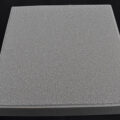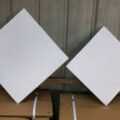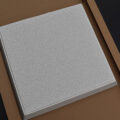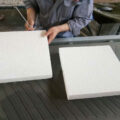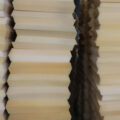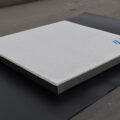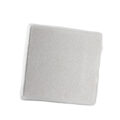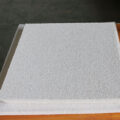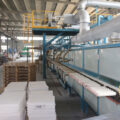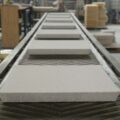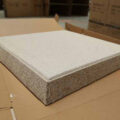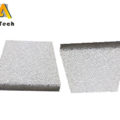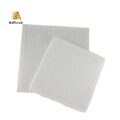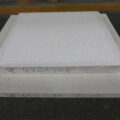Ceramic Filter for aluminum rod foundries can filter solid slag, such as metal oxides in molten metal, thereby improving the quality and output of aluminum alloys. Therefore, the use of ceramic foam filters has promoted technological progress in the foundry industry.
The ceramic porous foam filter is an open-pore mesh with a sponge-like structure for filtering aluminum melt. It has been widely used in aluminum rod foundry worldwide. Ceramic porous foam filter is a filter device that uses ceramic foam as the filter medium. The ceramic foam filter is installed in the filter box between the static furnace and the casting table. After the aluminum liquid is filtered by the filter box, it flows from the static furnace to the crystallizer.
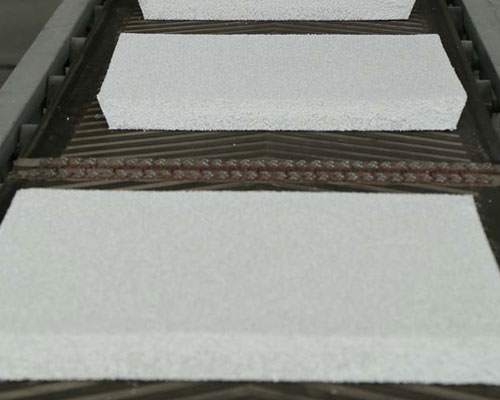
Ceramic Filter for aluminum rod foundries has the advantages of high filtration accuracy, high filtration efficiency, light weight, small footprint, convenient operation and use, and good working conditions. However, once used, foam ceramics are discarded and cannot be regenerated, and their texture is relatively brittle. The mixing of fragments should be avoided during installation.
Since 2012, AdTech has been committed to the research of on-line degassing devices and filtering devices for melt purification technology.
At present, AdTech molten aluminum purification equipment has been widely used in aluminum foundries. Ceramic foam filter (CFF) filtration technology is the most economical filtration method.
Molten aluminum filters are usually used in standard sizes (inches) with a porosity of 10 to 60 PPI (pores per linear inch). The size of the ceramic foam filter depends on its porosity, which is selected according to the filtering capacity, pouring time and the layout of the CFF filter box. The choice of the porosity of the molten aluminum filter element depends on the specific alloy, the temperature of the casting, the degree of contamination of the metal, and the required output quality.

